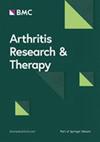The association between metabolic syndrome severity and frailty risk in patients with rheumatoid arthritis: a cross-sectional study
IF 4.6
2区 医学
Q1 Medicine
引用次数: 0
Abstract
Rheumatoid arthritis (RA) is a chronic autoimmune disease in which systemic inflammation may put individuals at increased risk of developing frailty and metabolic syndrome (MetS). However, the relationship between MetS severity and frailty remains poorly understood in individuals with RA. Further, traditional MetS diagnostic methods do not assess severity and thus may lack sensitivity in capturing subtle metabolic abnormalities. In this cross-sectional study, data from the National Health and Nutrition Examination Survey (2003–2018) were used to construct weighted multivariable logistic regression models to explore the risk association between MetS severity and frailty in RA patients. Restricted cubic spline analysis was used to examine non-linear correlation between MetS severity and frailty. We also conducted subgroup analyses and interactions as well as sensitivity analysis to evaluate the robustness of results. A total of 802 RA patients were included in this study, among whom 442 were identified as frail (52.05%). RA patients with higher MetS severity had significantly increased frailty risk [adjusted odds ratio (aOR): 1.26; 95% CI: 1.09–1.46; p = 0.003]. There was a non-linear relationship between MetS severity and frailty (p for overall < 0.001; p for non-linear < 0.001), with an inflection point at 0.089. When MetS z-score was < 0.089, there was no significant association between MetS z-score and frailty (p > 0.05), whereas the association was positive for scores ≥ 0.089 (aOR: 1.68; 95% CI: 1.30–2.17; p < 0.001). The risk of frailty increased significantly with increasing MetS severity among alcohol drinkers (aOR: 1.43; 95% CI: 1.19–1.71; p < 0.001) compared with non-drinkers (aOR: 0.97; 95% CI: 0.73–1.29; p = 0.085). Sensitivity analysis confirmed robustness of the association between MetS severity and risk of frailty. We identified a significant association between MetS severity and frailty risk in patients with RA. As MetS severity increased, the risk of frailty was higher among alcohol drinkers compared to non-drinkers. Clinicians should enhance frailty screening and management in patients with RA by incorporating assessments of MetS severity into routine practice.类风湿关节炎患者代谢综合征严重程度与衰弱风险之间的关联:一项横断面研究
类风湿性关节炎(RA)是一种慢性自身免疫性疾病,全身性炎症可能会增加个体发生虚弱和代谢综合征(MetS)的风险。然而,在RA患者中,MetS的严重程度和虚弱之间的关系仍然知之甚少。此外,传统的MetS诊断方法不评估严重程度,因此在捕捉细微的代谢异常方面可能缺乏敏感性。在这项横断面研究中,使用2003-2018年国家健康与营养检查调查的数据构建加权多变量logistic回归模型,以探索RA患者MetS严重程度与虚弱之间的风险关联。限制三次样条分析用于检验MetS严重程度与虚弱之间的非线性相关性。我们还进行了亚组分析和相互作用以及敏感性分析,以评估结果的稳健性。本研究共纳入802例RA患者,其中442例(52.05%)为体弱。met严重程度较高的RA患者衰弱风险显著增加[调整优势比(aOR): 1.26;95% ci: 1.09-1.46;p = 0.003]。MetS严重程度与虚弱之间存在非线性关系(p为总0.05),而当得分≥0.089时,相关性为正(aOR: 1.68;95% ci: 1.30-2.17;p < 0.001)。在饮酒者中,虚弱的风险随着MetS严重程度的增加而显著增加(aOR: 1.43;95% ci: 1.19-1.71;p < 0.001),与不饮酒者相比(aOR: 0.97;95% ci: 0.73-1.29;p = 0.085)。敏感性分析证实了MetS严重程度与衰弱风险之间的相关性。我们确定了RA患者met严重程度与衰弱风险之间的显著关联。随着MetS严重程度的增加,与不饮酒者相比,饮酒者的虚弱风险更高。临床医生应通过将MetS严重程度评估纳入常规实践,加强RA患者的虚弱筛查和管理。
本文章由计算机程序翻译,如有差异,请以英文原文为准。
求助全文
约1分钟内获得全文
求助全文
来源期刊

Arthritis Research & Therapy
RHEUMATOLOGY-
CiteScore
8.60
自引率
2.00%
发文量
261
审稿时长
14 weeks
期刊介绍:
Established in 1999, Arthritis Research and Therapy is an international, open access, peer-reviewed journal, publishing original articles in the area of musculoskeletal research and therapy as well as, reviews, commentaries and reports. A major focus of the journal is on the immunologic processes leading to inflammation, damage and repair as they relate to autoimmune rheumatic and musculoskeletal conditions, and which inform the translation of this knowledge into advances in clinical care. Original basic, translational and clinical research is considered for publication along with results of early and late phase therapeutic trials, especially as they pertain to the underpinning science that informs clinical observations in interventional studies.
 求助内容:
求助内容: 应助结果提醒方式:
应助结果提醒方式:


